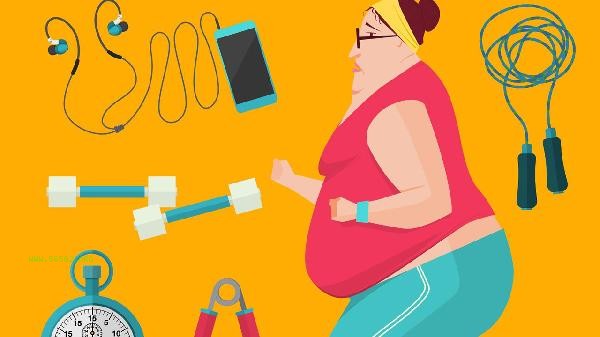During menstruation, it is possible to control diet and lose weight appropriately, but extreme dieting should be avoided. The main scientific methods for weight loss include adjusting dietary structure, supplementing iron elements, moderate exercise, ensuring sufficient sleep, and maintaining emotional stability.

1. Adjusting dietary structure:
The basal metabolic rate during menstruation can be increased by 5% -10%, and the intake of refined carbohydrates can be appropriately reduced to increase the proportion of high-quality protein and dietary fiber. It is recommended to choose whole grains, lean meat, deep-sea fish, dark vegetables and other foods that can meet nutritional needs and control calories. Avoid high salt and high sugar foods to reduce the risk of edema.
2. Iron supplementation:
The daily iron loss during menstruation is about 0.5-1mg, and iron deficiency can easily cause fatigue and metabolic decline. It is recommended to consume 20mg of iron per day. Foods rich in heme iron, such as animal liver, blood products, and spinach, have a higher absorption rate. Combined with vitamin C, it can improve absorption efficiency. It is not recommended to lose weight completely through a vegetarian diet.
3. Moderate exercise:

Low intensity exercise such as brisk walking, yoga, or swimming can be done on the 2nd to 4th day of menstruation, with a duration of 30-40 minutes. Exercise can relieve dysmenorrhea and consume 200-300 calories per day, but it is necessary to avoid movements that increase abdominal pressure, such as handstands and jumping. It is recommended to rest for the first two days if there is heavy bleeding.
4. Ensure adequate sleep: A decrease in progesterone levels can lead to sleep disorders, and 7-8 hours of sleep should be ensured every day. Lack of sleep can stimulate an increase in ghrelin secretion by 15% -20%, which can easily lead to overeating. Drinking warm milk or soaking feet before bedtime can improve sleep quality.
5. Maintain emotional stability:
Estrogen fluctuations can easily trigger emotional eating, and when serotonin levels decrease, the craving for sweet foods increases by 30%. It can be regulated through meditation, aromatherapy, and other methods. Consuming 50-70g of dark chocolate daily can help stabilize emotions and control calories.
During menstruation, special attention should be paid to balanced nutrition. Daily calorie intake should not be less than 1200 calories, and protein intake should be maintained at 1.2-1.5g/kg body weight. It is recommended to choose warm and nourishing foods such as red dates, yams, beef, etc., and avoid raw, cold, and stimulating foods. Combining Kegel exercises can improve pelvic blood circulation and gradually restore regular exercise intensity after menstruation. If severe fatigue or dizziness occurs, immediately stop dieting and consult a nutritionist if necessary to develop a personalized plan.





Comments (0)
Leave a Comment
No comments yet
Be the first to share your thoughts!